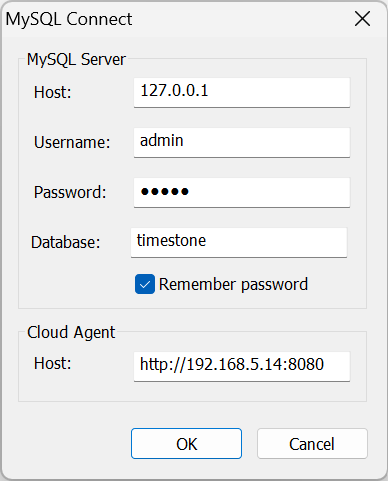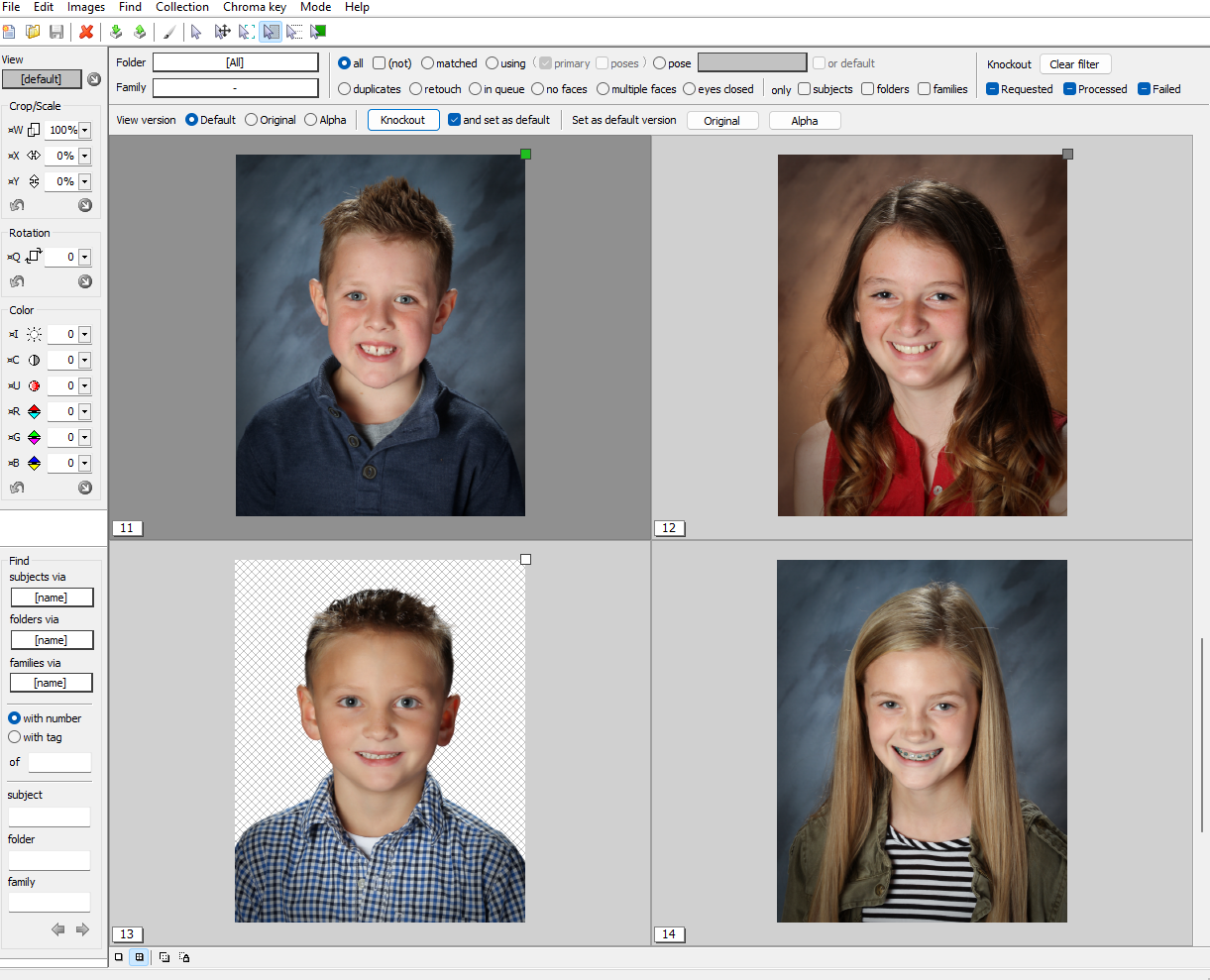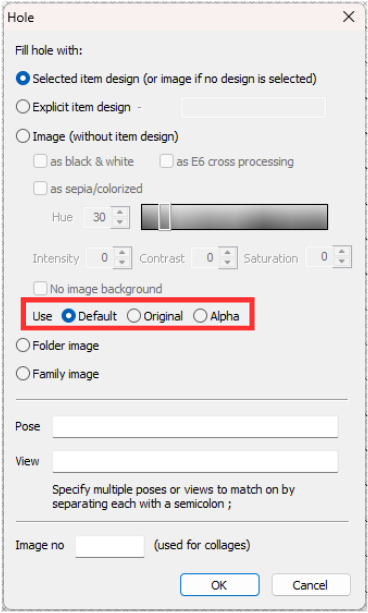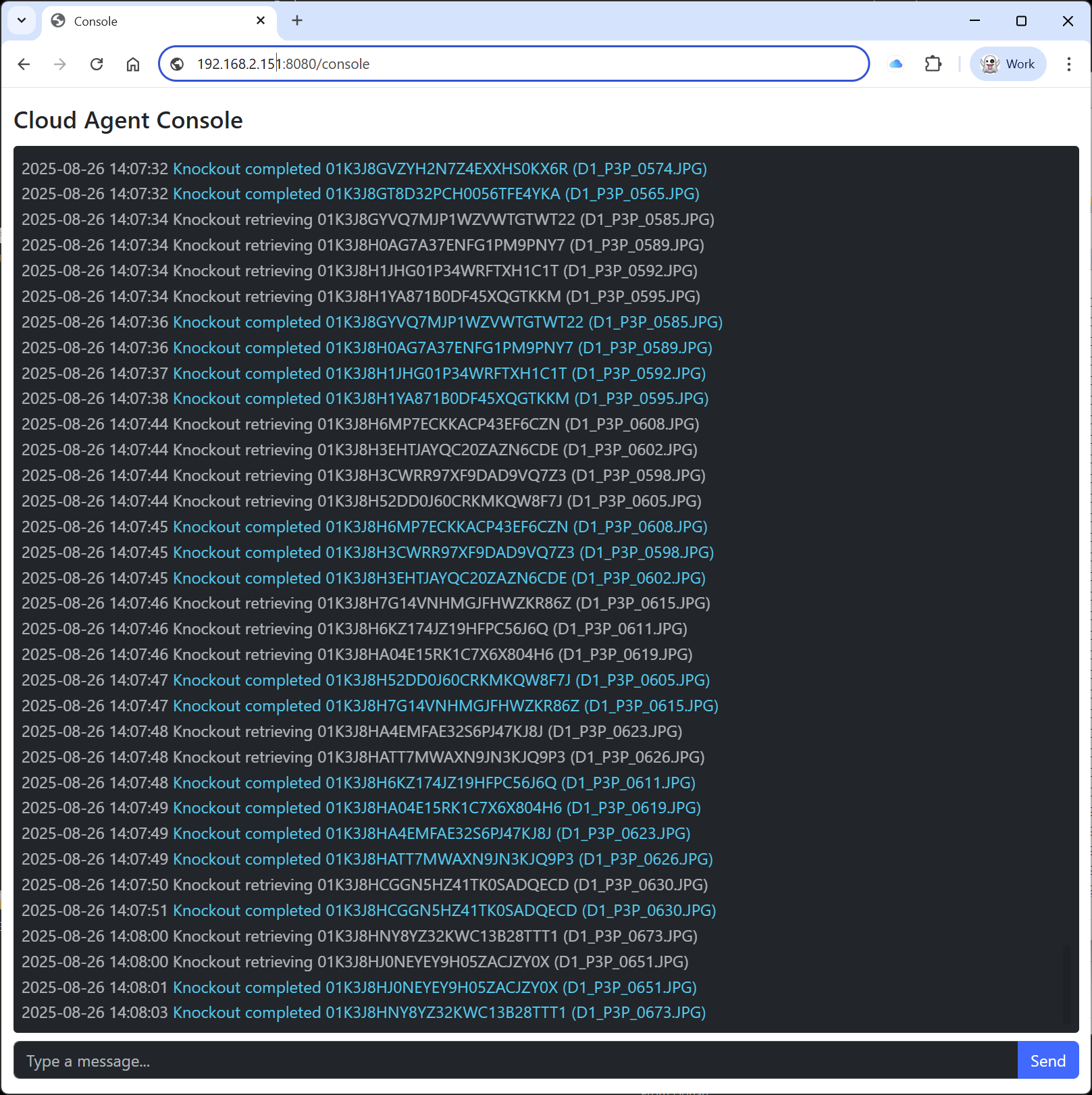Rather watch a video than read a document ?
A movie tutorial accompanies this article.
Knockouts by Timestone Software is a fully integrated, automatic system for extracting ‘subjects’ from their background.
Note the term ‘subject’ is used generically to indicate the subject matter of an image, not just the person (subjects) or people (families and groups). This means that important image elements such as chairs, musical instruments, props etc. are also extracted. The movie tutorial above shows many such examples.
Prerequisites
The following are required.
Version 4.11 (or later)
SQL jobs only
The Timestone Cloud Agent
Account credentials
Further Reading: The Timestone Cloud Agent
The Timestone Cloud Agent is a Windows service that handles communication between the Timestone Software applications and its cloud services.
Connecting the apps to the Cloud Agent
Since the Timestone Cloud Agent is the service that controls and manages the Knockouts system, the address of the Cloud Agent host will need to be entered into the connection window of the production applications.
Figure 1, below, shows the NeoPack connection window with the address of the Cloud Agent server.

Figure 1: The NeoPack connect window
Terminology
Before knocking out images, an understanding of some key terminology is useful.
alpha - refers to the transparent PNG images returned by the Knockouts system
original - the image that sent to be knocked out (usually jpegs)
default - the version (alpha or original) that the production software and IOS will use
requested - images that have been sent to knockout
processing - refers to images that have had knockouts requested and are awaiting the return of the alpha image
How it works
With the pre-requisites met and the application connected to the Cloud Agent server, knocking out images is simply a matter of selecting the images and selecting the Knockouts function.
To knock out images:
In Images Mode, select the image(s) to knock out
With the Alpha toolbar open, click the Knockout button, or navigate to Image > Alpha> Knockout.
The above action will send the requests to the Timestone Cloud Agent, who in turn will retrieve the original images and send them to the Knockouts system. The Cloud Agent then downloads the alpha images (PNGs) when ready and saves them in the same directory as the original images. As the PNGs arrive, the Cloud Agent will also refresh the app, meaning the knockout images are visible immediately.
NOTE
There is no need to refresh the images in the app in order to see the alpha images.
The renamed-refresh function, needed when using 3rd party knockout vendors, is not required with Timestone Knockouts.
Setting the default version
Timestone Knockouts is non-destructive, meaning the original image is still available and can be used instead of, or in conjunction with, the alpha image. The user has the ability to set either of these versions as the default.
The default version is the one that is used throughout the software and in IOS.
To set the default version:
At time of knockout - option to also ‘and set as default’ which sets the alpha as default
From the alpha toolbar - buttons to make either version the default for the selected images.

Figure 2: The alpha toolbar with the options and buttons to set the default version
Knockout filters
Three filters are available in Images Mode that can be applied independently or in combination with the existing filters:
Requested - in the queue for knockout
Processed - knockout complete
Failed - knockout request could not be processed
Knockout indicators
A small square icon at the upper right-hand of the image preview displays the knockout status of each image.

Figure 3: Four images, each with a different Knockout indicator
The four status indicators are as follows:
No indicator - image not sent for processing
Green - knockout has been requested and processing is in progress
Gray - knockout complete, original is the default is the default
White - knockout complete, original is the default is the default
Using knockout versions in templates
As mentioned, the software will use the Default version of any knocked out images. This includes when exporting images and in IOS.
However, the user has the ability to explicitly call a version into the image holes of templates. The image hole will then use this version regardless of which version has been set as the default.
This is particularly useful when one version is predominantly required, but the other version is needed for a particular product.
Two such examples:
Alpha images are used for all products and online, but composites require the original version
Original versions are required for all products, but the alpha version is needed for Legacy products

Figure 4: Image hole options
NOTE
All image holes will have the Default version pre-selected. There is no need for the user to explicitly select the Default version if that is what they intend to use.
Monitoring with the Console
A browser based console is available for the user to test the computer’s connection to the Cloud Agent and monitor the processing activity once images have been sent to knockout.
The console is reached by entering the Cloud Server Host address appended with /console. For example:
http://192.168.5.14:8080/console
Testing the connection with a ‘Ping”
To check the Cloud Agent is running and the current computer can communicate with it, simply enter the word Ping into the Text error at the bottom of the page. A successful connection will return the word Pong.
Monitoring
Once knockouts have been requested, the Console provides a running indication of the activity in progress.

Figure 5: The Console
FAQ
What is Knockouts by Timestone Software?
Knockouts by Timestone Software is an automatic system for extracting subjects from their background in images.
What are the four Test Error messages I see in the console?
When you launch the knockouts console, the system sends 4 test error messages to make sure it is communicating. These can be ignored.
How does knockouts pricing work?
The pricing model is on consumption - there is no need to pre-buy credits. At the start of each month, you will receive an invoice for the images processed the previous month. The pricing is per image and is tiered, so the more you do through the year, the cheaper they become.
Do I need to leave the job open while the images are being knocked out?
No, once all the requests have been sent to the Cloud Agent (all the little boxes are green), you can close the job and even shut down the app.
How do knockouts work in IOS
IOS will use whichever images are the Default. The exception is where you have products with image holes that call a specific version. These products will always display what was called into the image hole.
How big do the images need to be? Is there a size limit?
There is no lower limit however images can be no bigger than 100 megapixels.